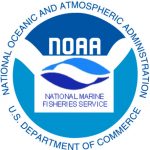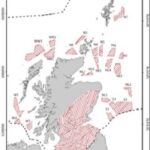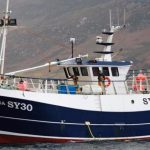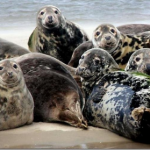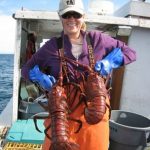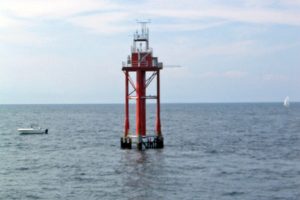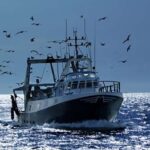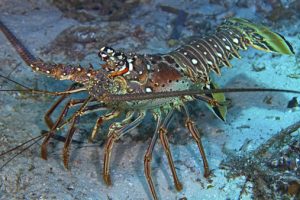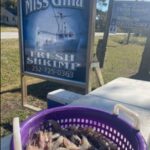Monthly Archives: May 2017
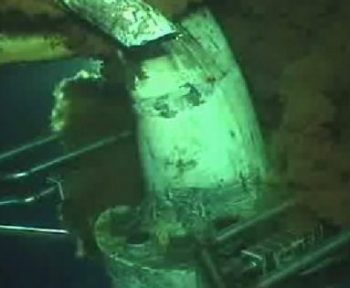
We should never allow offshore oil drilling near Myrtle Beach, BY Carol Coney
Jeffrey Nelson’s letter of May 9 tries to convey a sense of safety that new technology will bring to offshore drilling. He feels that underwater drilling platforms guided from miles away will somehow prevent oil spills. What he fails to mention is that technology quite often fails. Combine remote control with a platform many miles beneath the surface, and you are asking for disaster. Yet his premise is that if it is underwater and you can’t see it, it must be safe.Consider this: The Deepwater Horizon drilling platform was using proven technology and, according to the government investigation, failed because of human error and gross negligence. No amount of new technology will eliminate causes like that. Click here to read the op-ed 16:58
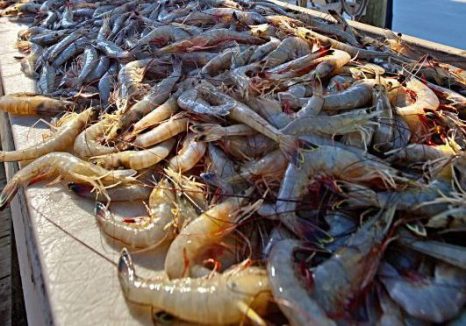
North Carolina shrimp catch soared to new record last year – why its a mystery
North Carolina shrimp trawlers caught more of America’s favorite seafood last year than any time on record. The verdict on why is unclear. Shrimpers in 2016 harvested a record 13.2 million pounds worth $28 million, a 45 percent increase over the previous year, according to state biologists. A warm autumn gets much of the credit leading to big hauls through New Year’s Day, some two months longer than usual, according to a release from the North Carolina Division of Marine Fisheries. Keith Bruno, owner of Endurance Seafood in Oriental, also credits mild temperatures.
“Weather makes all the difference,” he said. But weather does not entirely explain last year’s boom, said Steve George, a salesman at Willie R. Etheridge Seafood Company in Wanchese. Click here to read the story 14:31
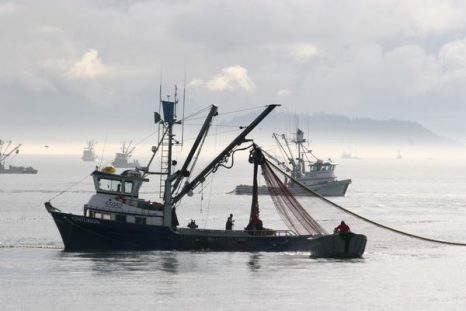
Fishy chatter: The evolution of fishing captains’ radio groups
I had 54 cents in my bank account when I bought my own commercial fishing operation at age 20. I scrawled my signature on a six-figure loan, made it through college finals and came home to my first seine boat, the cabin full of cardboard boxes overflowing with mildewed manuals about everything from Freon refrigeration to Marco powerblocks. My father gave me two treasures to start the season: an enormous binder full of Xeroxed charts showing a lifetime of accumulated fishing knowledge, and a VHF radio with a list of scrambler codes to install so I could talk to our radio group. Radio groups are a long tradition in Alaska’s commercial fishing community. Click here to read the story 13:45
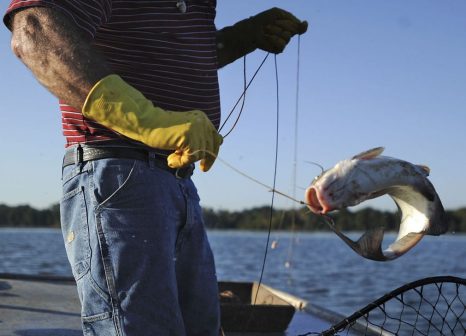
Last Man Standing: A Man and the River
Slicing across the tranquil Tennessee River, Leon Bivens looked across the dark blue expanse ahead — at the lights of the factories reflecting off the water and the steel and concrete bridges connecting the River City to destinations north. The 73-year-old’s calloused hands shrouded in yellow rubber gloves reached into the water and pulled on a line. A smattering of catfish and buffalo danced along the 100 hooks. “I love the river. The river is my life. I enjoy going to the river, putting down my lines, pulling them and catching fish, too. I really need to catch them, but I enjoy catching them anyhow. Ain’t I lucky,” Bivens said. For the past 59 years, Bivens has watched the changing world of the fishing industry from his boat’s wooden perch. He saw the rise in popularity of game fishing tournaments, the closing of mom-and-pop fish markets and the fall of independent commercial fishermen. click here to read the story 13:08
Metro lobster fishermen hauling in solid catches — and good prices
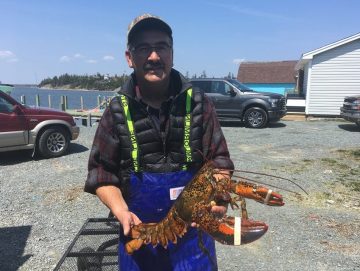 Lloyd Robicheau has endured broken bones, a torn meniscus, arthritis and more than a few lean seasons over the 33 years he’s stubbornly made a living fishing off the shores of Three Fathom Harbour. He’s even convinced his son, who’s now a Red Seal diesel mechanic, to stay clear of the business. “You won’t find a fisherman over 50 who’s not beat up,” said Robicheau, exhausted but still chatty after 11 hours on the water last Thursday. This balmy day, when temperatures soared above 20 C, served as a much-needed salve for Robicheau and the 10 or so other lobster fishermen who earn a living out of this small port called Fisherman’s Reserve, located a few kilometres beyond Lawrencetown Beach. Mother Nature has not been kind to these souls since the lobster season opened in Lobster Fishing Area 32, which stretches from Cole Harbour to Ecum Secum. A combination of high winds and driving rain deprived fishermen here of a week of fishing. The season lasts just nine weeks. Click here for more images, read the story 11:22
Lloyd Robicheau has endured broken bones, a torn meniscus, arthritis and more than a few lean seasons over the 33 years he’s stubbornly made a living fishing off the shores of Three Fathom Harbour. He’s even convinced his son, who’s now a Red Seal diesel mechanic, to stay clear of the business. “You won’t find a fisherman over 50 who’s not beat up,” said Robicheau, exhausted but still chatty after 11 hours on the water last Thursday. This balmy day, when temperatures soared above 20 C, served as a much-needed salve for Robicheau and the 10 or so other lobster fishermen who earn a living out of this small port called Fisherman’s Reserve, located a few kilometres beyond Lawrencetown Beach. Mother Nature has not been kind to these souls since the lobster season opened in Lobster Fishing Area 32, which stretches from Cole Harbour to Ecum Secum. A combination of high winds and driving rain deprived fishermen here of a week of fishing. The season lasts just nine weeks. Click here for more images, read the story 11:22
World-renowned chef Eric Pateman cooks up a statement on seal in Twillingate
 Along with his daily business responsibilities, Pateman travels the country and the world, espousing the delights of sustainable, local Canadian ingredients and their role in the country’s culture. In showcasing Canadian products, and with a mind to the celebration of Canada’s 150th birthday, the executive chef and president of the Edible Canada Bistro, decided to add seal meat to his restaurant’s menu for Canada’s largest food festival, Dine Out Vancouver, in February. This wasn’t done haphazardly. “I did a lot of research,” Pateman explained during a recent visit to Twillingate. “I learned about the sustainability of the product and scrutinized the ethical concerns about the seal hunt. To summarize, I didn’t find it a problem. In fact, the harvesting of seal meat, in my opinion, is certainly more ethical than most of our factory farmed foods. click here to read the story 10:09
Along with his daily business responsibilities, Pateman travels the country and the world, espousing the delights of sustainable, local Canadian ingredients and their role in the country’s culture. In showcasing Canadian products, and with a mind to the celebration of Canada’s 150th birthday, the executive chef and president of the Edible Canada Bistro, decided to add seal meat to his restaurant’s menu for Canada’s largest food festival, Dine Out Vancouver, in February. This wasn’t done haphazardly. “I did a lot of research,” Pateman explained during a recent visit to Twillingate. “I learned about the sustainability of the product and scrutinized the ethical concerns about the seal hunt. To summarize, I didn’t find it a problem. In fact, the harvesting of seal meat, in my opinion, is certainly more ethical than most of our factory farmed foods. click here to read the story 10:09
Louisiana’s New Red Snapper Catch-Share Program
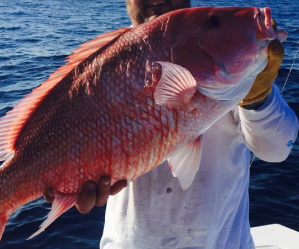 When it comes to the great red snapper management mess, the consensus of opinion among recreational-fishing interests and advocates is that states (vs. the feds) can manage coastal fish stocks more effectively and fairly. One assumption here is that states are much more in tune with recreational fishing in their waters. Well, in that regard, Louisiana has just delivered a solid bitch slapping to the recreational-fishing community. At least, that has been the reaction of many anglers groups to the surprise announcement made by the Louisiana Department of Fish and Wildlife on Thursday (May 25th) that a group of 150 anglers would be gifted with 25,000 pounds of red snapper in 2018 and again in 2019. In case you haven’t yet made the connection, let me make that for you. In two words: catch shares. click here to read the story 09:41
When it comes to the great red snapper management mess, the consensus of opinion among recreational-fishing interests and advocates is that states (vs. the feds) can manage coastal fish stocks more effectively and fairly. One assumption here is that states are much more in tune with recreational fishing in their waters. Well, in that regard, Louisiana has just delivered a solid bitch slapping to the recreational-fishing community. At least, that has been the reaction of many anglers groups to the surprise announcement made by the Louisiana Department of Fish and Wildlife on Thursday (May 25th) that a group of 150 anglers would be gifted with 25,000 pounds of red snapper in 2018 and again in 2019. In case you haven’t yet made the connection, let me make that for you. In two words: catch shares. click here to read the story 09:41
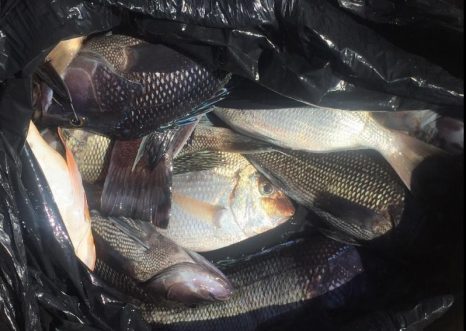
Black sea bass poachers on Buzzards Bay return with the season
Harbormaster and shellfish employees waded knee-deep in the Wareham River last weekend, fetching dead, floating fish and dropping them into black plastic trash bags. Each fish would serve as evidence. An angler had spied Environmental Police seizing 225 black sea bass from another boat and dumped his own illegal catch to avoid arrest. On the same sunny Sunday, beach-goers snapped cellphone pictures of boats that buzzed to the shoreline to drop off coolers, which Wareham Harbormaster Garry Buckminster believes were filled with illegal fish. The boats then motored back offshore to catch more. Its really a wild west in some of these areas, Buckminster said. Black sea bass season had officially begun. click here to read the story 09:12
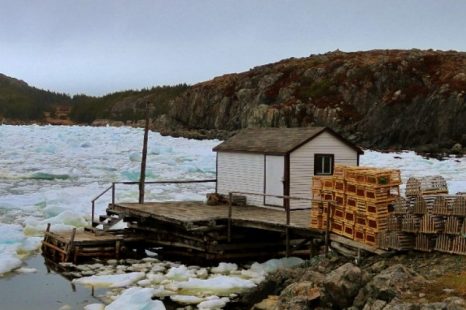
Pack ice having huge impact on Twillingate economic activity
Harbourmaster Gord Noseworthy shakes his head as he describes the situation. “Nothing is getting landed. I have been working here for 21 years and I’ve never seen it like this.” He looks over at the boats tied up at the wharf and explains the ripple effect the ice has on the small outport community. “It is not just the boats and their crews that are being affected,” he said. “We have 50 to 60 people that load and unload the boats that aren’t working. These workers probably won’t get enough to qualify for EI. The crab that is usually landed here is being sent to places like Harbour Grace and Catalina. Not a single seal came onto our dock this year,” Noseworthy said,,, Lobster fisherman Hardy Troake is looking at a seriously depleted season. “Lobster season was supposed to have opened May 7,” he told the Pilot Friday. “It was then delayed until the 13th and look now; we still haven’t been able to get out.” Click here to read the story 11:16
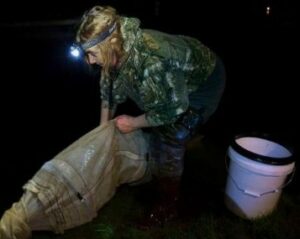
Maine’s latest fishing frenzy brings in $1,200 a pound — and it’s not lobster
It is just past midnight, rain clouds stalking a full moon, and Julie Keene is out on a muddy riverbank in thigh-high rubber boots and a camouflage jacket, a headlamp strapped over her hair. As she wrestles with an oversize fishing net, Keene tells how she went from rags to riches, and that’s not a story many fishermen tell. Just a few years ago, the sardine factory in her hometown of Lubec had closed, and Keene was scrounging for a living digging clams and gathering periwinkles from the beach. “We were so damn poor we were on food stamps,” Keene said.Then came what for Maine was the equivalent of a gold rush. It was slimy, squirmy baby eels — in such demand in Asian markets that they were suddenly more profitable than even the beloved Maine lobster. One memorable night in 2012 when the baby eel were running strong, Keene was paid $36,000 — in cash — for her catch Click here to read the story 10:17
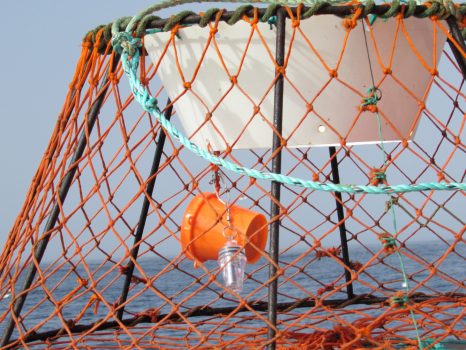
NL research shows LED lights draw crab to the pot
While they stopped short of trying a tiny disco ball, a local team of researchers has proven the addition of certain light emitting diode (LED) lights will draw snow crab to offshore traps.
“Fishing enterprises could theoretically reduce bait costs through LED light substitution, or enhance existing catch rates of baited traps by simply adding an LED light,” notes their research report, now available through the journal Aquaculture and Fisheries. A team from Memorial University of Newfoundland’s Fisheries and Marine Institute, and the Department of Fisheries and Oceans completed related work in May and June 2016, with the help of the DFO base in St. John’s and, later, the fishing vessel Atlantic Champion. Click here to read the story 09:33
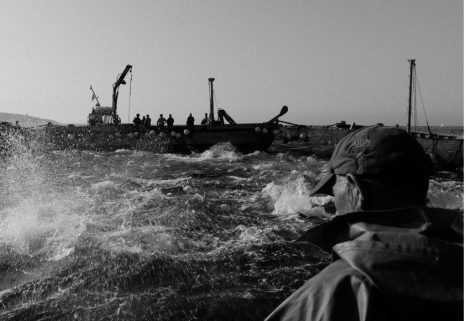
Spain’s 3,000-Year-Old Tuna Harvest in Pictures
Atlantic bluefin tuna are among the most hunted species on the planet and one of the best ways to see the effects of an increasingly industrialized food chain. But for a few short weeks during early summer on Spain’s southern coast, an ancient ritual known as the almadraba still plays out—an intense, intimate, and violent tradition that strives to harvest some of the world’s most valuable seafood in a sustainable manner. Photographer Michael Magers traveled to Spain in 2015 to join a small crew of fisherman in the economically depressed town of Barbate and document the spectacle. Click here to view the images 08:45
Competitors ask court to undo Pacific Seafood expansion
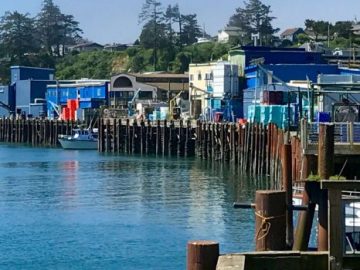 In the two weeks since Pacific Seafood announced it would consolidate its dominant position on Newport’s Bayfront with the acquisition of two additional fish processing plants, the deal has generated more litigation than fish fillets. On Thursday, two companies who claim Pacific illegally conspired with its competitors to lock them out of the Newport seafood processing business, filed an antitrust lawsuit in federal court to undo the transactions. The lawsuit alleges Pacific, under the leadership of third-generation Chief Executive Officer Frank Dulcich, acquired three properties on Newport’s Yaquina Bay in the past 23 months even though the plaintiffs offered more money. click here to read the story 08:17
In the two weeks since Pacific Seafood announced it would consolidate its dominant position on Newport’s Bayfront with the acquisition of two additional fish processing plants, the deal has generated more litigation than fish fillets. On Thursday, two companies who claim Pacific illegally conspired with its competitors to lock them out of the Newport seafood processing business, filed an antitrust lawsuit in federal court to undo the transactions. The lawsuit alleges Pacific, under the leadership of third-generation Chief Executive Officer Frank Dulcich, acquired three properties on Newport’s Yaquina Bay in the past 23 months even though the plaintiffs offered more money. click here to read the story 08:17
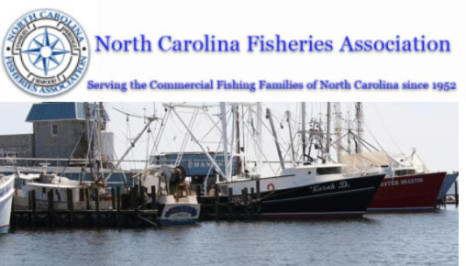
North Carolina Fisheries Association Weekly Update for May 26, 2017
Click here to read the Weekly Update, to read all the updates, Click here 08:02
Coast Guard suspends search for the Crew of the Miss Debbie
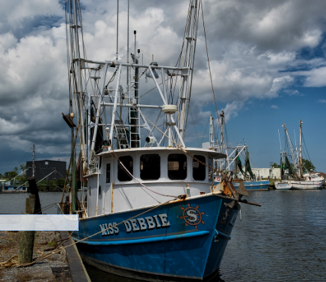 The Coast Guard suspended their search at approximately 8:20 p.m. Friday for three missing boaters one mile northeast of Tybee Island. “Suspending a case is never an easy decision, nor is it a decision that is hastily made,” said Captain Gary Tomasulo, Commander, Coast Guard Sector Charleston. “We remain ready to reinstitute a search if new information becomes available.” Click here for the press release 20:45
The Coast Guard suspended their search at approximately 8:20 p.m. Friday for three missing boaters one mile northeast of Tybee Island. “Suspending a case is never an easy decision, nor is it a decision that is hastily made,” said Captain Gary Tomasulo, Commander, Coast Guard Sector Charleston. “We remain ready to reinstitute a search if new information becomes available.” Click here for the press release 20:45
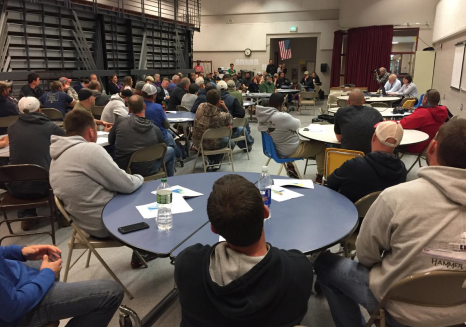
Maine Lobstermen Say They Aren’t Harming Threatened Coral Beds
The fragile deep-sea corals that populate the canyon walls and basins in the Gulf of Maine provide habitat for many species of fish as well as baby lobster, crabs and squid. But the New England Fisheries Management Council has concluded that the northeast coral beds are threatened when they are disturbed by commercial fishing operations and is weighing new restrictions that could affect Maine. The council held a public hearing in Ellsworth Thursday night, where lobstermen spoke in support of a plan that protects coral colonies while still allowing them to haul their traps. Most of the lobstermen who spoke agree that the coral beds in the Gulf of Maine play an important role in the overall health of the marine ecosystem. And most, such as Cranberry Isles fisherman Jack Merrill, think that Maine lobstermen and the coral beds have been getting along well for decades. Click here to read the story 18:21
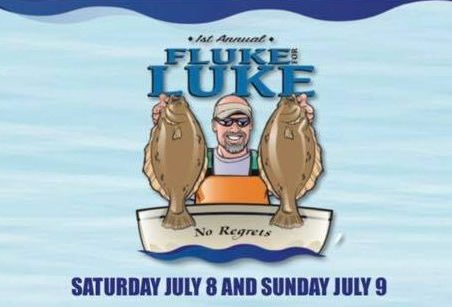
Fishing Events Benefits Family of Luke Gurney
Last June, the Island lost Luke Gurney in a commercial fishing accident. This year the Fluke for Luke fishing tournament will celebrate his love of fishing and raise funds for his two sons college education. In addition to the fishing contest, the event will include a silent auction and raffle. The tournament will take place on Saturday and Sunday, July 8 and 9. Fluke and black sea bass will be eligible species. An awards ceremony and silent auction will be held on Sunday July 9, starting at 5 p.m. at the Portuguese-American Club in Oak Bluffs. The event is being organized by a group of Lukes friends, who also would like to recognize Peter Hermann and the VFW in Oak Bluffs for helping pass the torch after running the annual summer fluke tournament for many years. Link For more information, please visit the Fluke for Luke Facebook page. 15:17
Austral Fisheries charged over electrocution death on prawn trawler
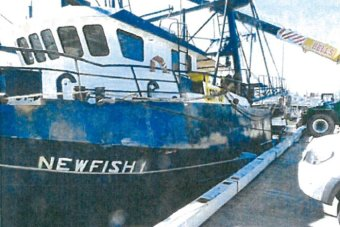 One of Australia’s largest commercial fishing companies has been charged over the electrocution of a young man on a prawn trawler in the Gulf of Carpentaria. Ryan Donoghue, 20, died in 2013 while cutting rusted shackles using a 240-volt angle grinder which was plugged into a socket without a safety switch on Austral Fisheries Newfish 1 trawler. Mr Donoghues father Steven has spent the past three-and-a-half years pushing for a prosecution and better regulation of Australia’s maritime industry.,, Austral fisheries faces a maximum penalty of $1.5 million if found guilty. Click here to read the story 13:53
One of Australia’s largest commercial fishing companies has been charged over the electrocution of a young man on a prawn trawler in the Gulf of Carpentaria. Ryan Donoghue, 20, died in 2013 while cutting rusted shackles using a 240-volt angle grinder which was plugged into a socket without a safety switch on Austral Fisheries Newfish 1 trawler. Mr Donoghues father Steven has spent the past three-and-a-half years pushing for a prosecution and better regulation of Australia’s maritime industry.,, Austral fisheries faces a maximum penalty of $1.5 million if found guilty. Click here to read the story 13:53
King fishery closed
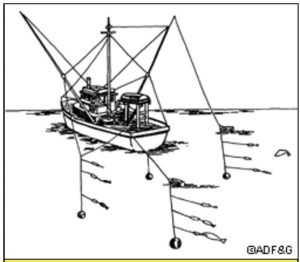 Fisheries managers in Southcentral Alaska might still be wrestling with what to do about a weak return of king salmon to the Copper River, but their counterparts in Southeast Alaska have acted to protect kings returning to the Taku and Stikine Rivers. Officials with the Alaska Department of Fish and Game today announced commercial troll fisheries which catch most of the Southeast kings, or Chinook as they are otherwise called will close at midnight Sunday. Preseason forecasts for wild Chinook salmon production in Southeast Alaska are at an all-time low, a press release said. Typically, in the Taku and Stikine rivers, nearly half the run has entered the river by the end of the third week of May; however, record low numbers of Chinook salmon are being seen in-river this year. The Taku and Stikine are transboundary rivers, and Fish and Game runs research programs with the Department of Fisheries and Oceans Canada to assess in-season run strength. Click here to read the story 13:13
Fisheries managers in Southcentral Alaska might still be wrestling with what to do about a weak return of king salmon to the Copper River, but their counterparts in Southeast Alaska have acted to protect kings returning to the Taku and Stikine Rivers. Officials with the Alaska Department of Fish and Game today announced commercial troll fisheries which catch most of the Southeast kings, or Chinook as they are otherwise called will close at midnight Sunday. Preseason forecasts for wild Chinook salmon production in Southeast Alaska are at an all-time low, a press release said. Typically, in the Taku and Stikine rivers, nearly half the run has entered the river by the end of the third week of May; however, record low numbers of Chinook salmon are being seen in-river this year. The Taku and Stikine are transboundary rivers, and Fish and Game runs research programs with the Department of Fisheries and Oceans Canada to assess in-season run strength. Click here to read the story 13:13
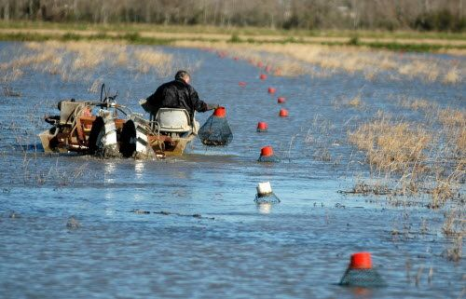
Deadly White Spot Syndrome in Louisiana crawfish farms could imperil $300 million industry
The crawfish industry in south Louisiana is growing concerned by a deadly virus that threatens the crop. White spot syndrome virus was first discovered in farmed shrimp in Thailand and China in the early 1990s, but it was not known in Louisiana crawfish until 2007, the LSU AgCenter says. “Symptoms include sluggish crawfish that don’t move much once they are dumped from the trap. They do not pinch hard and most cannot walk,” the AgCenter says. How did the virus get to Louisiana? Here’s what the AgCenter says: “No one can say with any certainty. There are many possibilities. Many countries export both pond-raised and wild shrimp to the United States. A study of imported shrimp indicates occurrence of WSSV may be very high in these products. Here’s the rub – “Imported frozen shrimp used as bait for coastal fishing is also a hazard. Leftover bait shrimp that is discarded could be picked up by wild shrimp or crabs, thereby creating immediate risks for those populations and spread to others. The same risk to wild crawfish exists when frozen imported shrimp are used for bait in inland waters. Click here to read the story 11:26
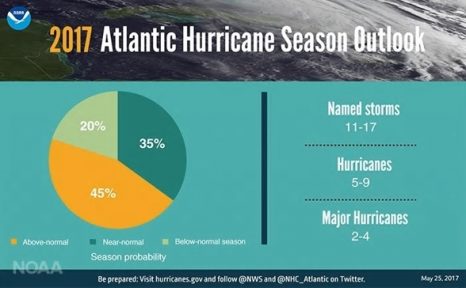
NOAA Forecasts Busy Hurricane Season for Atlantic
Less than a year after Hurricane Matthew raked the East Coast, killing 34 people and causing $10 billion in damage in the U.S. alone, coastal areas are once again preparing for the onset of the Atlantic hurricane season. This year, forecasters with the National Oceanic and Atmospheric Administration are expecting to see above-average storm numbers in the Atlantic, despite the uncertainty of whether an El Nino will develop over the summer. The forecast is currently for 11 to 17 named storms to form, of which five to nine are expected to become hurricanes, and two to four major hurricanes. The forecast, though, does not predict when, where, and how these storms might hit, Ben Friedman, the acting NOAA administrator said during a press conference, as he and other officials urged coastal residents to begin their preparations. Click here to read the story 10:38
California and Oregon Governors request Salmon Disaster Assistance
 With the West Coasts salmon fisheries in crisis, on Thursday California Gov. Edmund G. Brown Jr. and Oregon Gov. Kate Brown sent a letter to U.S. Secretary of Commerce Wilbur Ross requesting declaration of a catastrophic regional fishery disaster and commercial fishery failure for salmon in their states. Officials report that there has been an unprecedented collapse in the salmon population in California and Oregon. Tribal allocations are at an all-time low, and the proposed closures and minimal open salmon fishing seasons will have significant negative impacts on thousands of West Coast residents. The declaration the governors are seeking begins the process for requesting federal aid to assist commercial salmon anglers and salmon-dependent business who continue to suffer from declining salmon populations. Click here to read the story, and read the governors letter 09:38
With the West Coasts salmon fisheries in crisis, on Thursday California Gov. Edmund G. Brown Jr. and Oregon Gov. Kate Brown sent a letter to U.S. Secretary of Commerce Wilbur Ross requesting declaration of a catastrophic regional fishery disaster and commercial fishery failure for salmon in their states. Officials report that there has been an unprecedented collapse in the salmon population in California and Oregon. Tribal allocations are at an all-time low, and the proposed closures and minimal open salmon fishing seasons will have significant negative impacts on thousands of West Coast residents. The declaration the governors are seeking begins the process for requesting federal aid to assist commercial salmon anglers and salmon-dependent business who continue to suffer from declining salmon populations. Click here to read the story, and read the governors letter 09:38
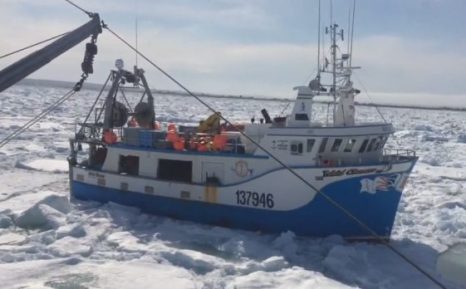
Canadian Coast Guard warns Fishermen – Too dangerous to go fishing due to ice
The Canadian Coast guard is telling Newfoundland fishermen not to go fishing because of sea ice that’s packed into bays on the northeast coast of the island. “I would definitely say don’t go out,” said Trevor Hodgson, superintendent of ice for the Atlantic region. “If you’re in port, that’s the safest place for you to be. If you’re out of port, in open water, don’t try and get back through that ice pack to get into port. Choose another, alternate route,” Hodgson added. It’s particularly bad now because of the storm that hit the island over the long holiday weekend pushing thick, heavy ice into shore. Hodgson said he’s fearful fishermen are going out not realizing the potential danger. Click here to read the story 08:04
Recreational IFQ’s? Louisiana wants to give 150 anglers almost unlimited access to red snapper
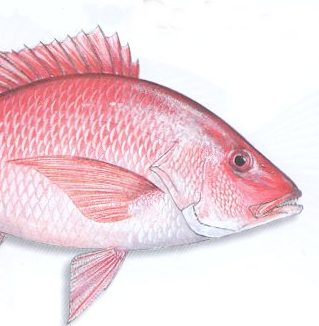 Despite vehement opposition from recreational-fishing advocacy groups, the Louisiana Department of Wildlife and Fisheries says it has worked up a pilot program that will award a significant portion of the state’s red snapper haul to select recreational anglers. The department announced the plan in a Thursday afternoon press release, just one day after meeting with pro-recreational fishing groups and mentioning nothing about the program. The structure would be similar to what exists in the commercial sector, where fishers have been awarded percentages of the overall commercial quota, and may harvest their red snapper at any time during the year. The system, called individual fishing quotas, has been panned by recreational-fishing organizations as well as good-government groups because it has set up so-called Sea Lords, who own quota and make hundreds of thousands of dollars on a public resource without ever leaving the dock. click here to read this story 20:20
Despite vehement opposition from recreational-fishing advocacy groups, the Louisiana Department of Wildlife and Fisheries says it has worked up a pilot program that will award a significant portion of the state’s red snapper haul to select recreational anglers. The department announced the plan in a Thursday afternoon press release, just one day after meeting with pro-recreational fishing groups and mentioning nothing about the program. The structure would be similar to what exists in the commercial sector, where fishers have been awarded percentages of the overall commercial quota, and may harvest their red snapper at any time during the year. The system, called individual fishing quotas, has been panned by recreational-fishing organizations as well as good-government groups because it has set up so-called Sea Lords, who own quota and make hundreds of thousands of dollars on a public resource without ever leaving the dock. click here to read this story 20:20
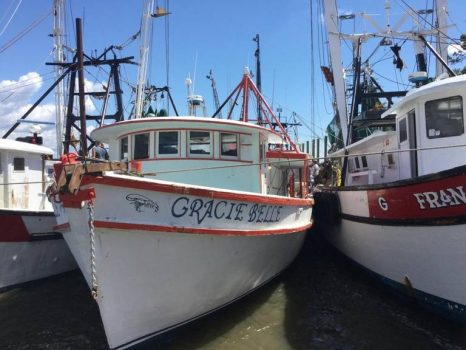
Beaufort shrimper brings damaged trawler home: ‘It’s life or death. It’s what we do’
If not for opening day, a shrimp fleet might have been spared the dings, bruises and brokenness the boats were nursing at a private dock on St. Helena Island on Thursday. But opening day for a shrimper is a hallowed date. South Carolina waters are open to trawling and those who make a living in white rubber boots are on the water. Even when the weather this week churned up some of the nastiest conditions experienced fishermen had ever seen. It was during a storm early Wednesday morning, in the dark more than a mile off of Pritchards Island, that the shrimp boat Gracie Belle was waiting for daylight and the 8 a.m. start of shrimp season. The boat and its crew wouldn’t make it to work, though all would be saved by the end of the day. Good Video, Great story! Click here to read the story 18:12
Coast Guard identifies missing Fishermen, search continues for the Crew of F/V Miss Debbie
 The search resumes Thursday for three men lost at sea when their fishing boat capsized as a result of a reported tornado. Hobo Seafood, which owns the capsized boat, Miss Debbie, put out a notice Thursday morning saying the search Wednesday – which was Day 2 of searching – was unfruitful largely due to uncooperative weather. “Weather has been too rough for divers to inspect the fishing vessel, but they are using other means for the search,” Hobo Seafood put out in a statement. Click here to read the story Coast Guard identifies missing fishermen, The Coast Guard identified Gary McGowen, Benjamin Dover and Isaac West as the three adult males that went missing about one mile northeast of Tybee Island on Tuesday evening. Click here to read the story 16:31
The search resumes Thursday for three men lost at sea when their fishing boat capsized as a result of a reported tornado. Hobo Seafood, which owns the capsized boat, Miss Debbie, put out a notice Thursday morning saying the search Wednesday – which was Day 2 of searching – was unfruitful largely due to uncooperative weather. “Weather has been too rough for divers to inspect the fishing vessel, but they are using other means for the search,” Hobo Seafood put out in a statement. Click here to read the story Coast Guard identifies missing fishermen, The Coast Guard identified Gary McGowen, Benjamin Dover and Isaac West as the three adult males that went missing about one mile northeast of Tybee Island on Tuesday evening. Click here to read the story 16:31
Renewed calls for income bridging as harvesters and plant workers experience worst ice situation in decades
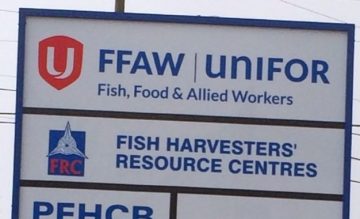 Severe ice conditions continue to affect people working in the fishing industry. Harvesters and plant workers have been without income for several weeks, some for over two months. Over the past few weeks, FFAW leadership has met with the senior DFO officials, Premier Dwight Ball and fisheries minister Steve Crocker to emphasize the dire situation hundreds of families are experiencing. Repeated calls by the FFAW, provincial government and affected individuals have resulted in the federal government acknowledging the situation, yet action has not been taken to provide income support. click here to read the press release 15:55
Severe ice conditions continue to affect people working in the fishing industry. Harvesters and plant workers have been without income for several weeks, some for over two months. Over the past few weeks, FFAW leadership has met with the senior DFO officials, Premier Dwight Ball and fisheries minister Steve Crocker to emphasize the dire situation hundreds of families are experiencing. Repeated calls by the FFAW, provincial government and affected individuals have resulted in the federal government acknowledging the situation, yet action has not been taken to provide income support. click here to read the press release 15:55
FISH-NL calls on Ottawa for ice compensation/gear replacement
 The Federation of Independent Sea Harvesters of Newfoundland and Labrador (FISH-NL) is calling on Ottawa to extend EI benefits for fish harvesters on Newfoundland’s northeast coast impacted by severe ice conditions. FISH-NL also says harvesters who lost crab gear should be compensated because the federal government should not have opened the fishery in their areas. “Some harvesters and their families are having an extremely hard time of it,” says Ryan Cleary, President of FISH-NL, in calling for ice compensation in the form of an EI extension. “They can’t go fishing because ice conditions haven’t improved, and they ran out of EI benefits weeks ago.”,,, John Gillett, an inshore fisherman from Twillingate, wrote the following letter today to federal Fisheries and Oceans Minister Dominic LeBlanc, click here to read the press release 15:44
The Federation of Independent Sea Harvesters of Newfoundland and Labrador (FISH-NL) is calling on Ottawa to extend EI benefits for fish harvesters on Newfoundland’s northeast coast impacted by severe ice conditions. FISH-NL also says harvesters who lost crab gear should be compensated because the federal government should not have opened the fishery in their areas. “Some harvesters and their families are having an extremely hard time of it,” says Ryan Cleary, President of FISH-NL, in calling for ice compensation in the form of an EI extension. “They can’t go fishing because ice conditions haven’t improved, and they ran out of EI benefits weeks ago.”,,, John Gillett, an inshore fisherman from Twillingate, wrote the following letter today to federal Fisheries and Oceans Minister Dominic LeBlanc, click here to read the press release 15:44
Coastal lawmaker wants to create fish farming industry in North Carolina waters
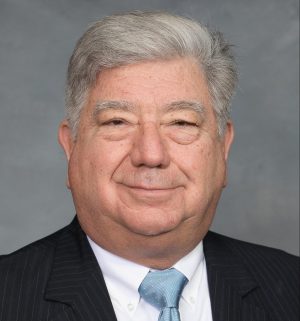 A proposal moving through the state Senate calls for leasing waters off the North Carolina coast so people can farm fish. Senate Bill 410 would allow people to lease from 100 to 1,500 acres in the state’s sounds and the Atlantic Ocean, where they could build underwater pens to raise various species of fish that they could later sell to supermarkets and restaurants. “We’re creating an industry here,” sponsor Sen. Bill Cook, R-Beaufort, told members of the Senate Finance Committee this week. “This is not something we’re doing in North Carolina. This will allow us to do fish farming and bring in some big bucks.” Sebastian Belle, executive director of the Maine Aquaculture Association, told lawmakers that fish farming is a $100 million business in his state, which has been leasing areas along its coast for 35 years. “The sector is growing worldwide,” Belle said, adding that fish farming “will help keep kids in those (coastal) communities working on the waterfront.” click here to read the story 13:23
A proposal moving through the state Senate calls for leasing waters off the North Carolina coast so people can farm fish. Senate Bill 410 would allow people to lease from 100 to 1,500 acres in the state’s sounds and the Atlantic Ocean, where they could build underwater pens to raise various species of fish that they could later sell to supermarkets and restaurants. “We’re creating an industry here,” sponsor Sen. Bill Cook, R-Beaufort, told members of the Senate Finance Committee this week. “This is not something we’re doing in North Carolina. This will allow us to do fish farming and bring in some big bucks.” Sebastian Belle, executive director of the Maine Aquaculture Association, told lawmakers that fish farming is a $100 million business in his state, which has been leasing areas along its coast for 35 years. “The sector is growing worldwide,” Belle said, adding that fish farming “will help keep kids in those (coastal) communities working on the waterfront.” click here to read the story 13:23


































